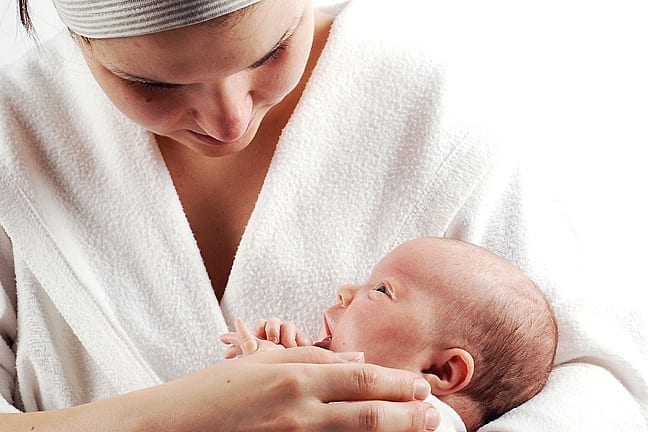What happens when that little bundle of joy comes with a big bundle of obsessive-compulsive (OC) symptoms and a whole lot of anxiety?You’ve heard of postpartum depression, but new moms are also at risk for postpartum OC symptoms. We’re not talking about your run-of-the-mill, new-mom worries that result in peeking in on a sleeping newborn from time to time.The more extreme example: A newbie mother has recurring fears of bad things happening to her baby. The result: Obsessive behaviors like checking on the infant so often that she can’t finish a conversation, or washing a baby bottle many times more than necessary (like, for hours). When symptoms reach a level where they significantly interfere with daily life, they can qualify as postpartum obsessive-compulsive disorder (OCD).MORE: A Healthy PregnancyMothers-to-be are often screened for postpartum depression, but not for excess anxiety and OCD, according to psychologist Kiara Timpano, Ph.D., of the University of Miami. She and a team of researchers from Florida State University and the University of North Carolina-Chapel Hill developed a prevention program and are publishing the results of their investigation in the Journal of Psychiatric Research.“Cognitive behavior therapy (CBT) is one of the most effective treatments for anxiety disorders, and we developed our prevention program around this framework,” she says. “This short CBT-based prevention curriculum was incorporated into traditional childbirth education classes, making the program feasible and relatively easy to administer.”It also made it drug-free. Timpano points out that, while there is a lot to learn about OCD, there is evidence that antidepressants that regulate the serotonin system are “uniquely effective in the treatment of OCD; other medications just don’t work as well,” she says. However, nursing (and other) moms may not want to pop prescription pills, however effective, so a CBT-based therapy may be preferable.The group also researched which mothers were at greater risk for postpartum OC symptoms. On the checklist: higher levels of anxiety before pregnancy, a pre-existing anxiety disorder and certain types of beliefs (such as a need to control so-called “bad” thoughts or a fear that thoughts equate to actions). Such mothers often haven’t been getting the help they need, Timpano says, which can be overwhelming for the entire family, and may contribute to postpartum depression.“Over the last decade there has been a tremendous growth in our understanding of postpartum depression,” she says, “but what many do not realize is that difficulties with anxiety during the perinatal period are also widespread and can be incredibly devastating.”The good news: the mummies in the prevention program experienced less postpartum anxiety than women in the usual childbirth class, and were less anxious as much as six months after the blessed event. The researchers hope that this will lead to mothers being screened for postpartum OC symptoms, just as they often are for depression.DISCUSS: Depression and Anxiety Strategies“This would allow us to catch those parents who are struggling early,” Timpano says, and “get them the help and tools they need.” Then they can focus on the important things—like raising their little Baby Einstein or Mini Mozart.
© YouBeauty 2024




































